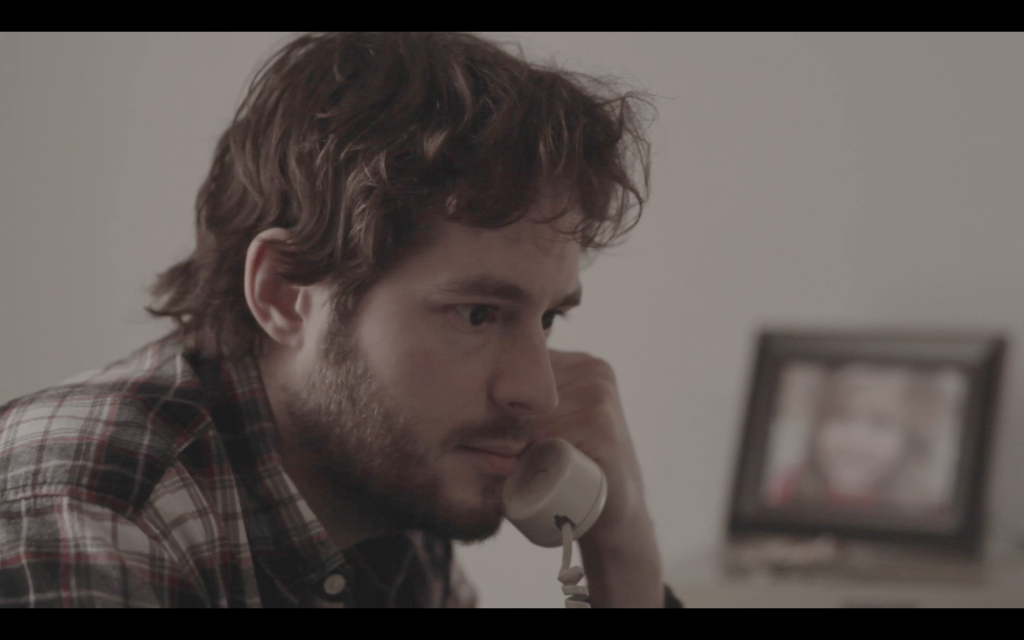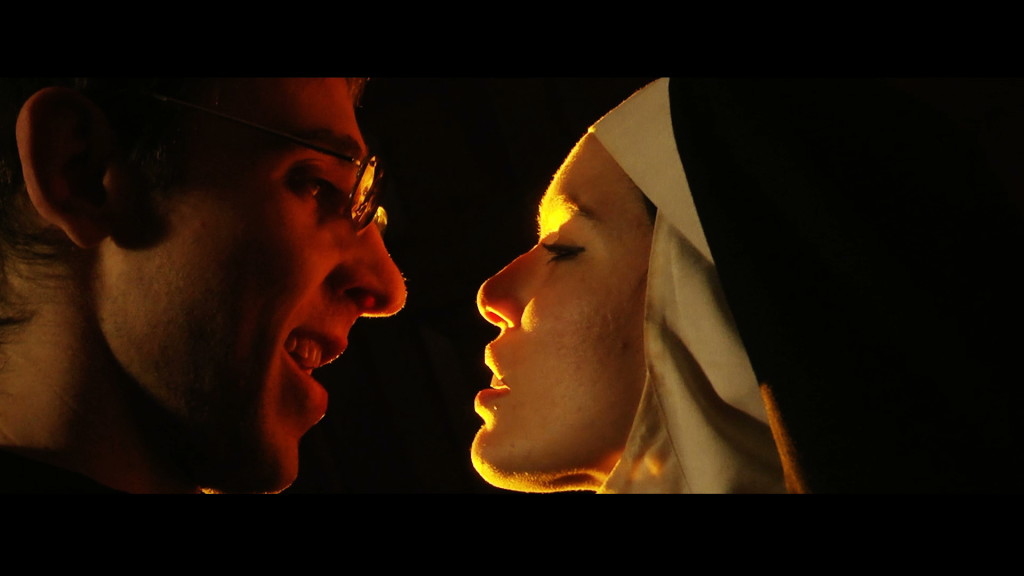Review: U of T Hart House Film Festival
A preview of the best U of T student and alumni-made films of the year

The University of Toronto Film Festival has been hosted by Hart House Theatre and the Hart House Film Board since 2002, fulfilling a simple mandate: to “Celebrate and Promote U of T’s rich contribution to the arts through its student and alumni filmmakers.” Past festivals have screened films by alumni like David Cronenberg (Maps to the Stars and A History of Violence) and Atom Egoyan (Chloe). The submission period ended on March 13th, 2015 and provided some very intriguing pieces that I was able to screen before the festival. The two films selected for this article, created by University of Toronto alumni, have shown that U of T is host to a cinematic community deserving recognition. Luckily enough, I had a chance to speak to the directors about the making of both films.
The Gift
Nazeer Mohamed
This film is about an estranged alcoholic father that wants to attend his daughter’s birthday but feels as though his ex-wife will not accept him because of his past. He goes to the house but is unable to make it inside, and instead leaves a gift on her bicycle. The film itself was both very well-made and emotionally touching with its powerful subject matter.
The film’s director, Nazeer Mohamed, is a U of T alumni, with a degree in Mechanical Engineering. He was involved with the Hart House Film Board (HHFB) and took a few filmmaking courses. About the support system at Hart House, Nazeer stated, “Rick Palidwor, the head of the board, was of great support to me in making this film. The film board also helped me rent equipment for the shoot. They are of great help for new student filmmakers, I recommend anyone to join them.” Mohamed has always loved films and believed it was time for him to make his own. On coming up with a storyline, he stated, “I wanted to choose a story that was simple and small, yet emotionally deep that could possibly connect with an audience. The story of a recovering alcoholic who struggles to stay sober came to mind. And making his young girl as his motivation to change felt like a good touch.”
The process of actually creating the film was much more difficult than anticipated for the first time director. Gathering a script, a team, equipment, and locations proved to be a long journey that forced him out of his comfort zone. In the process, he met a lot of new people who kindly guided him to reach his filmmaking goal. The process was definitely worth the journey according to Nazeer, “A hundred different things goes into making a film, regardless of whether it is a 5 minute short film or a 2 hour feature film. It requires you to persist and not give up until your vision is fully realized. The experience definitely made me a confident filmmaker, also a stronger human being. Making a film can be the hardest thing one can do.”
The film is powerful and incentive enough to see the whole festival, as there’s something for everyone in the subject matter. No specific message was trying to be conveyed, instead the audience will experience it differently based on their background, and “It all depends on where you are coming from too. An alcoholic would see something different in ‘The Gift’ as opposed to single mother or a beloved child”.

Satan’s Dolls
Carlo Schefter
This film was very different than anything I had ever seen. A little bit longer, running at 20 minutes, it was an excellent dark film with very comical aspects. Essentially, the film centres on a seductress on the run after committing murder then joining a nunnery as an escape. She causes insanity at the nunnery and brings in a demonic presence that leads to a mix of sex, murder, and suicide. The end will shock everyone and we won’t spoil it here- but I assure you it is worth viewing. Rick Palidwor of Hart House called the film “one of the best student shorts I have seen in 20 years, in terms of craft.”
Carlo Schefter, the director, made the film based on 70’s Italian cinema that he had been watching at the time. Generally, he wanted to make a film that would turn out to be fun and a little scary. He describes the film as, “a Jungian morality tale about embracing the shadow within oneself, and the repression of the dark aspects of the self leading to neurosis. A bit outmoded and overplayed, I guess this is a ‘nunsploitation’ film about ‘being yourself’.” A very worthy description of a film that shocks every moment.
The filmmaking proved to be more challenging than expected for Schefter, “I wrote the script around everything I had access to, then brought it to my buddy who’s my right hand man. We agreed that it was vaguely doable. So we blindly embarked upon the project and it beat the shit out of us. The best part was covering an effigy of the cop in gasoline and then blowing it up on a beach in the dead of winter. Everything took forever and I regret nothing.” An interesting choice by the filmmaker was to use dramatic toned lip dubbing for the voices that were added post-production. It added a very offbeat aspect to the film that was inspired by the Old Italian films he had been watching at the time. It was an artistic decision, that according to him, should not be cinematically common; “in terms of audio, I just said what a director should never really say- ‘fuck it, we’ll do it in post.’”
As for Schefter personally, he describes himself as “an artist and musician and filmmaker who makes things. I have a website with most of my stuff on it. I have a band called the PM Players, and a production company called PM Pictures.” I personally will be checking out some of his other work based on what I saw in Satan’s Dolls.

The festival takes place at Hart House on March 30th, 2015 and is open to anyone interested. For more information on the festival, Hart House Film Board, or any workshops or related events, visit the Hart House website. There are a lot of different groups and events to get involved in if you have an interest in film and filmmaking.
